A day after American Pharoah became the first horse since 1978 to win the Triple Crown, the colt’s Hall of Fame trainer, Bob Baffert, met with TIME at a New York City hotel restaurant—flanked by his wife, Jill, and 10-year-old son, Bode—for an extended conversation.
Some excerpts from the interview:
After this 37-year Triple Crown drought, and after you lost three prior Triple Crown chances at the Belmont, including losing by a nose with Real Quiet in 1998, honestly, did you ever think you’d win the Triple Crown?
I grew up with Quarter Horse racing, but I never imagined even having a thoroughbred or even being a trainer of a thoroughbred or anything like that. And once I got involved, after going through it three times, I never imagined ever getting a fourth shot at it. Because I thought, well, I had a good chance, in 2001 with Point Given, my best shot. But he didn’t win the Derby; he missed the first one and then he won the other two. After that, I felt like that was my last chance to do it with a horse that I felt was superior to the rest of them. I thought that was it. I was done, and I already missed my window.
After the win, you said that the Triple Crown is about sharing greatness. What’s the greatest thing about American Pharoah?
Not only his athleticism but he has a great mind. And you need that too. Because he had to go through a lot to get here. The grind of running, shipping out of state back and forth. It can wear on a horse. He’s got the mindset to be able to continue. He never lost his appetite, he kept his weight on, which is very important. And the way he moves. He moves like no other horse I’ve ever had. Somebody measured: his stride is two feet longer than Secretariat’s. He just moves over the top of the ground. He’s quick, he’s fast and he doesn’t use a lot of energy. So that’s why he dominates.
How do you know if a horse has a good mind?
After they run a few times, you’ll know if they can handle the experience. Some horses, they can be really quiet. They run one time, and their minds can get frazzled. They start stressing, they can’t take it, they stop eating. They don’t handle it well, they don’t handle situations. He handles people. He’s been surrounded by hundreds of people. And he’s a kind horse. He’s very quiet, kind, but competitive. He wants to dominate. And when he runs, he always look like he’s having fun.
Meet the Winner of the 1948 Triple Crown
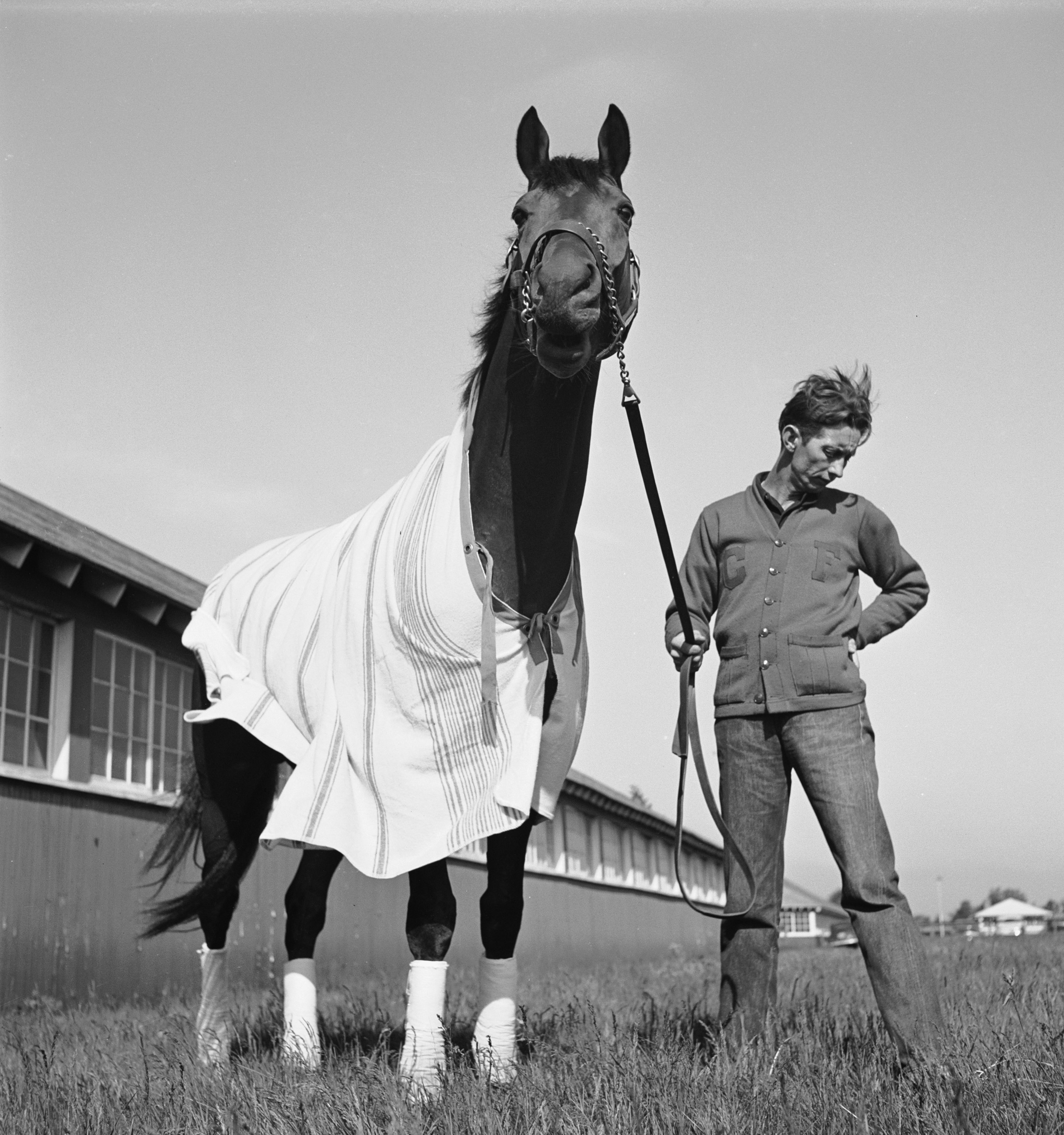
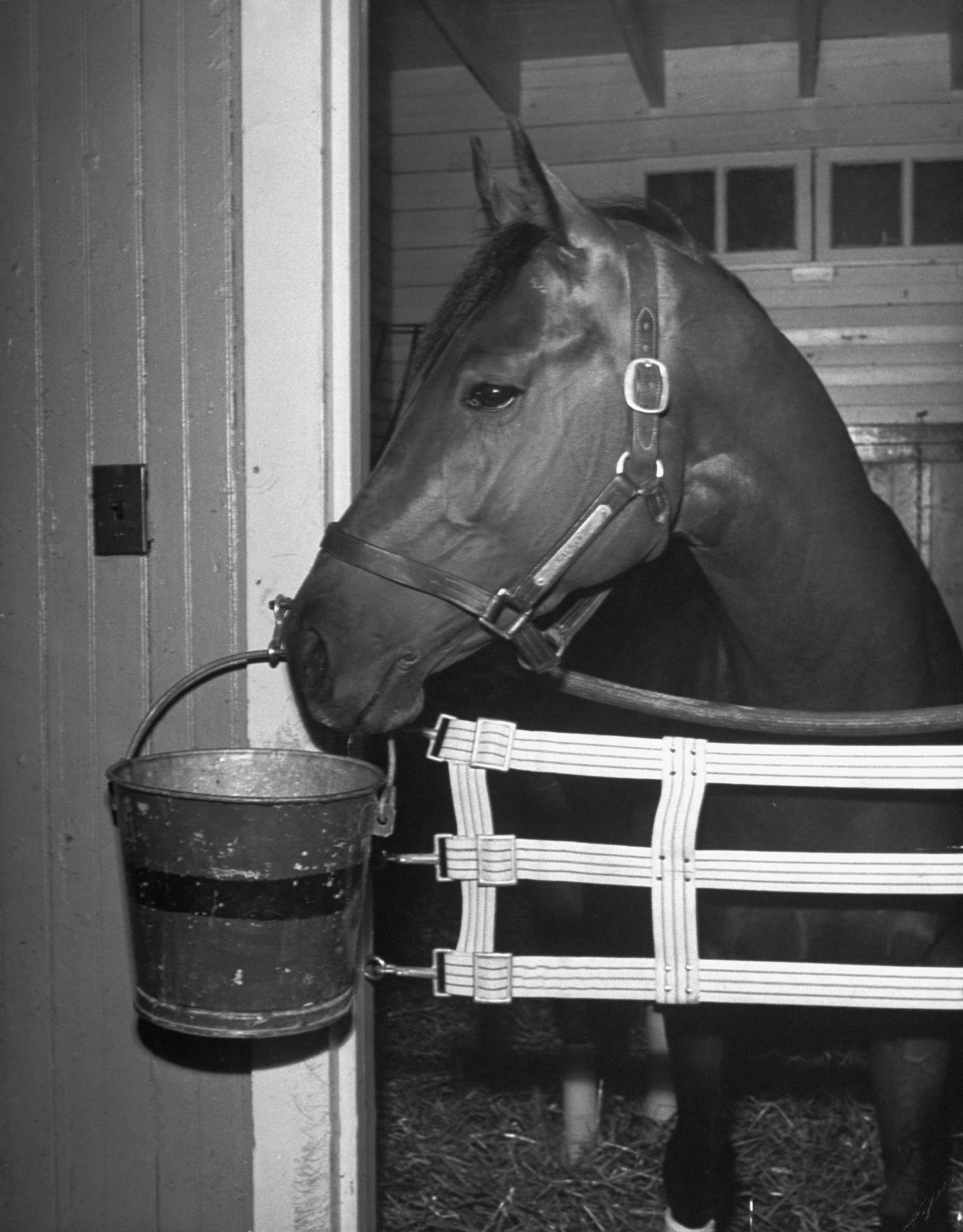
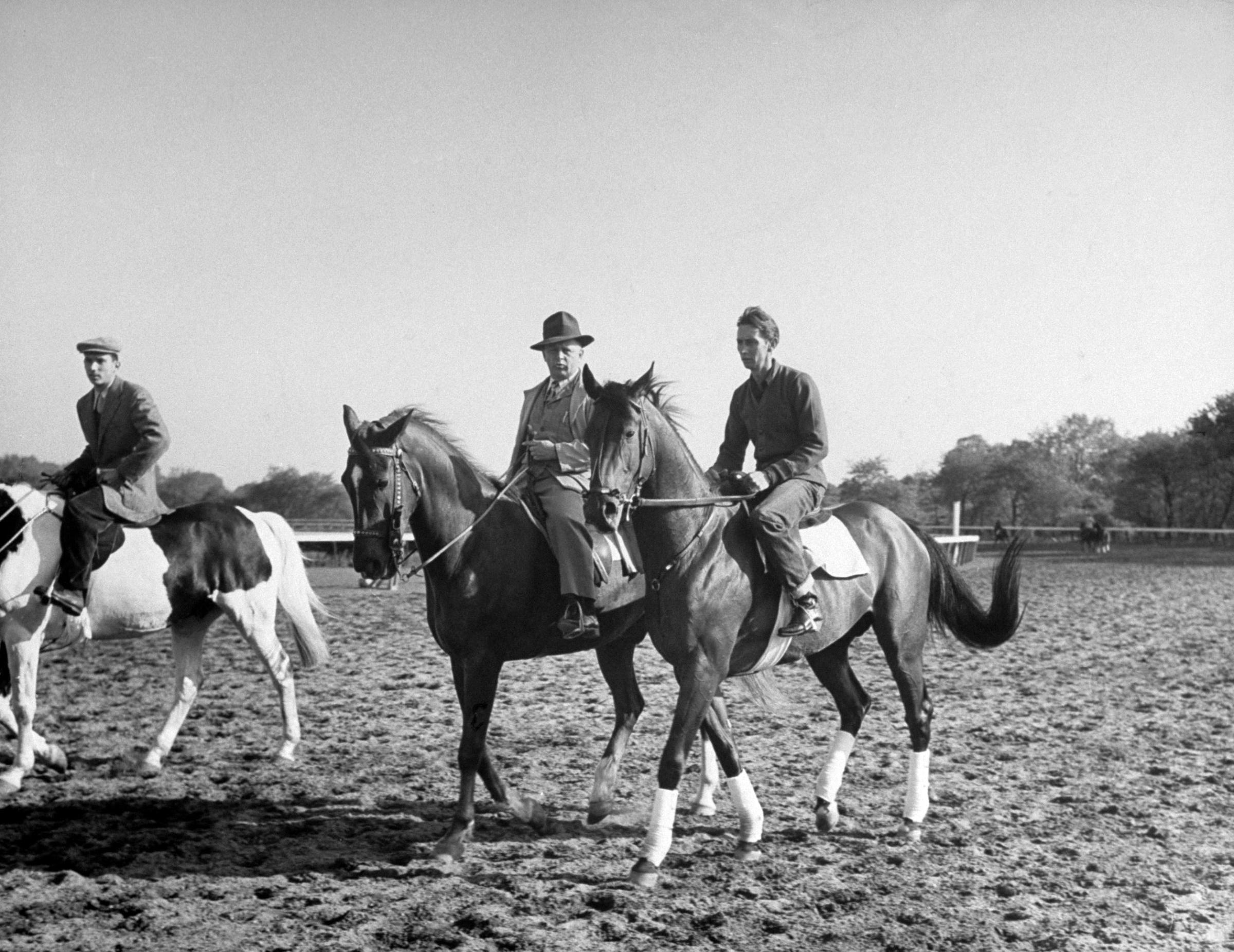
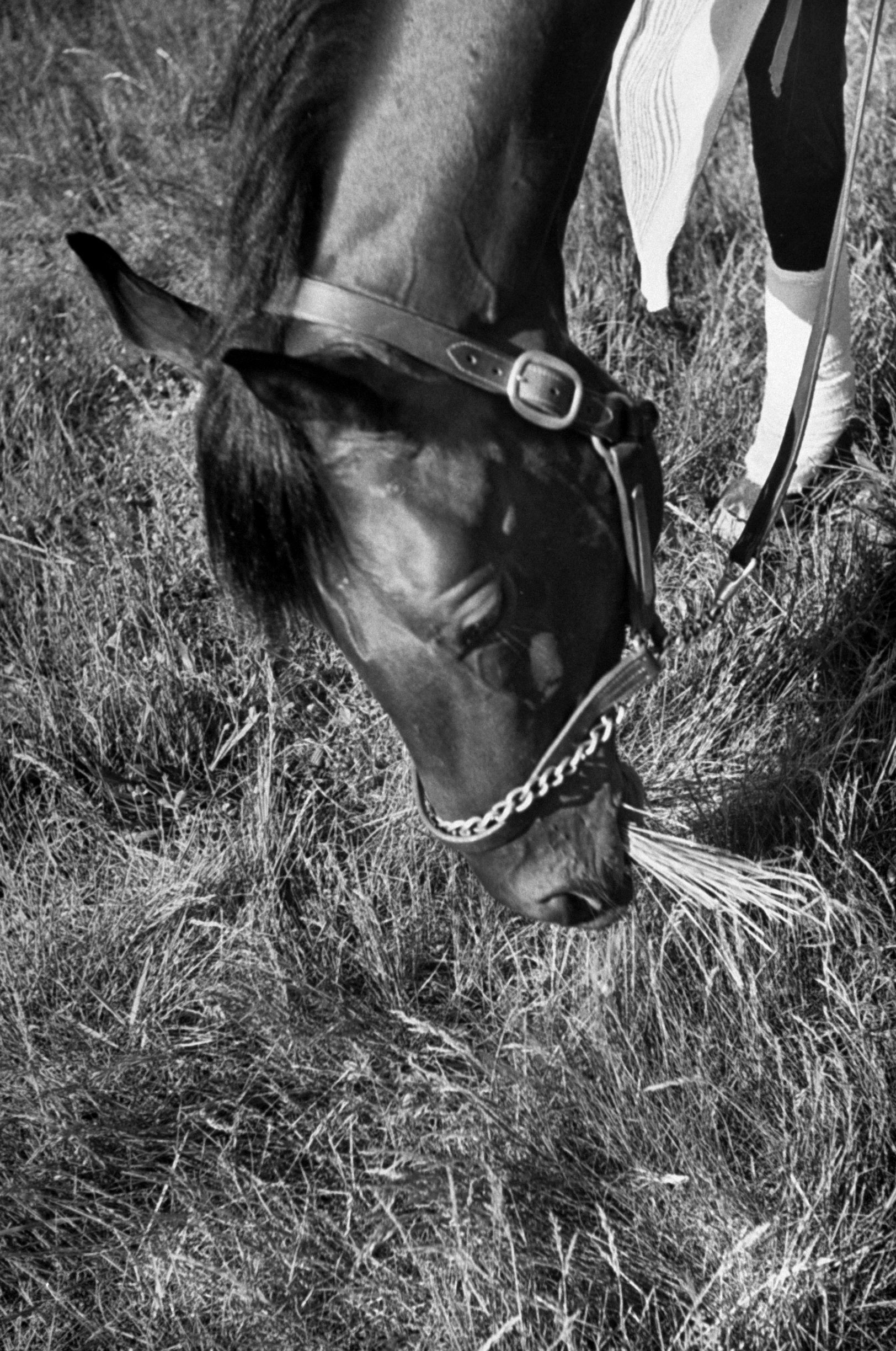
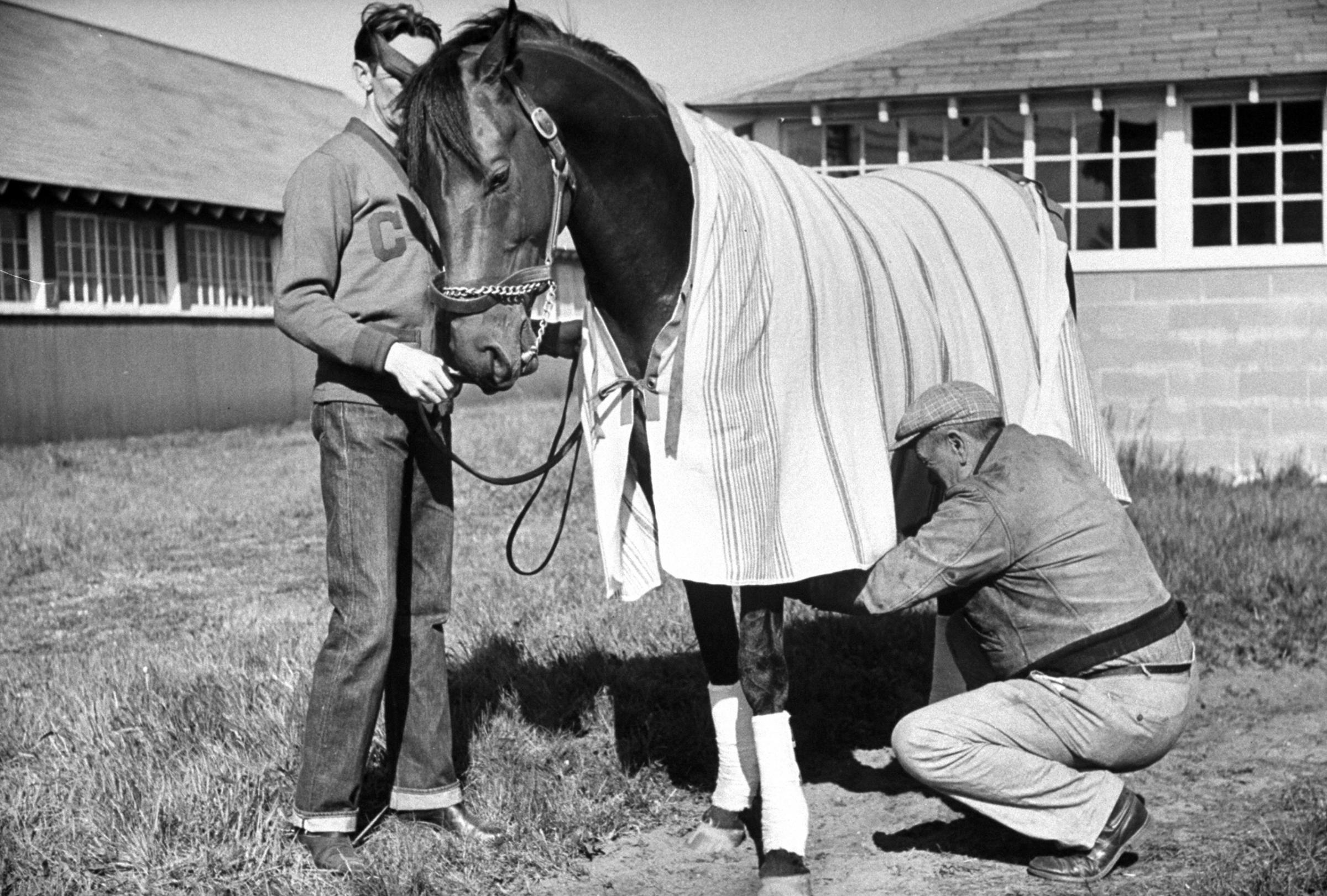
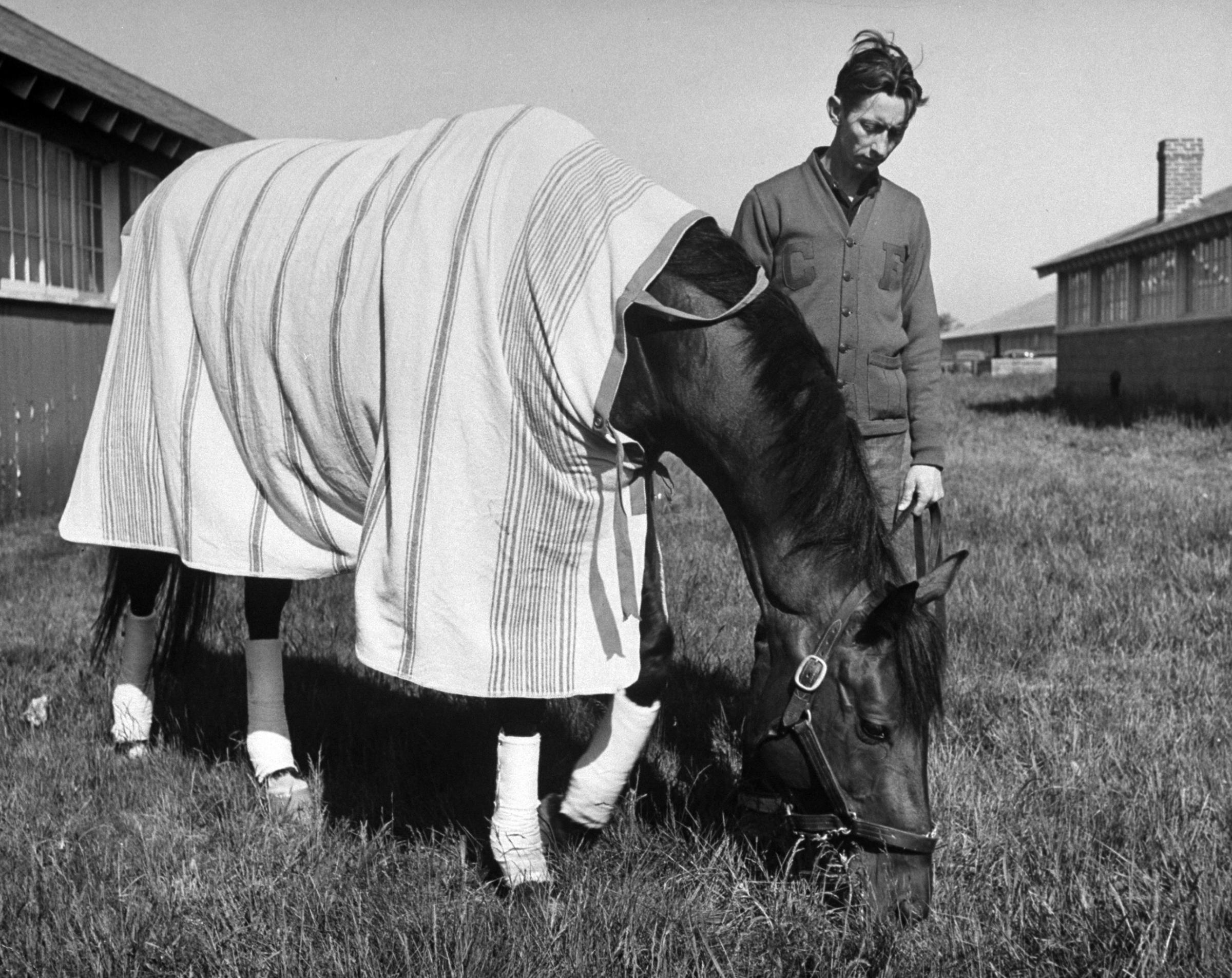
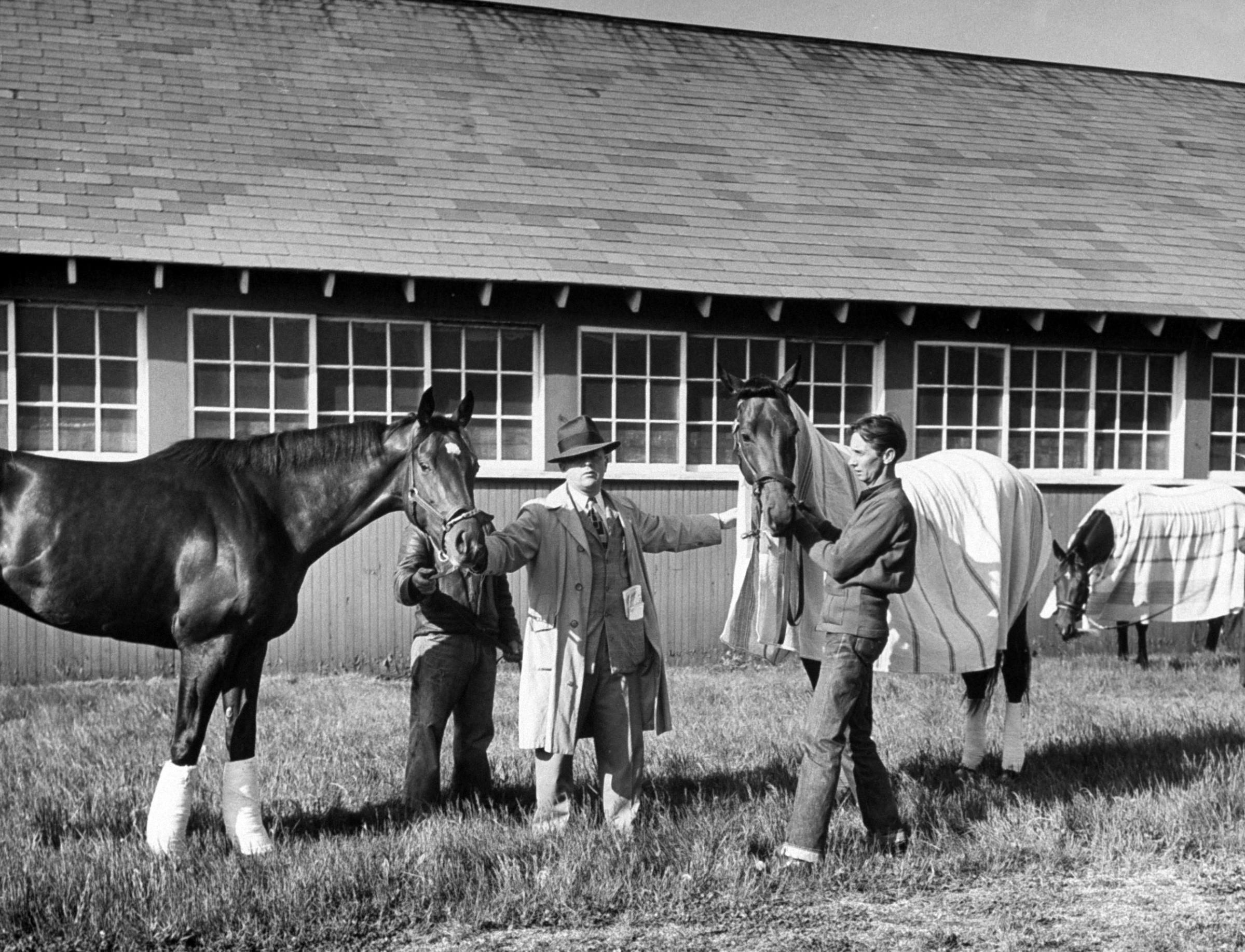
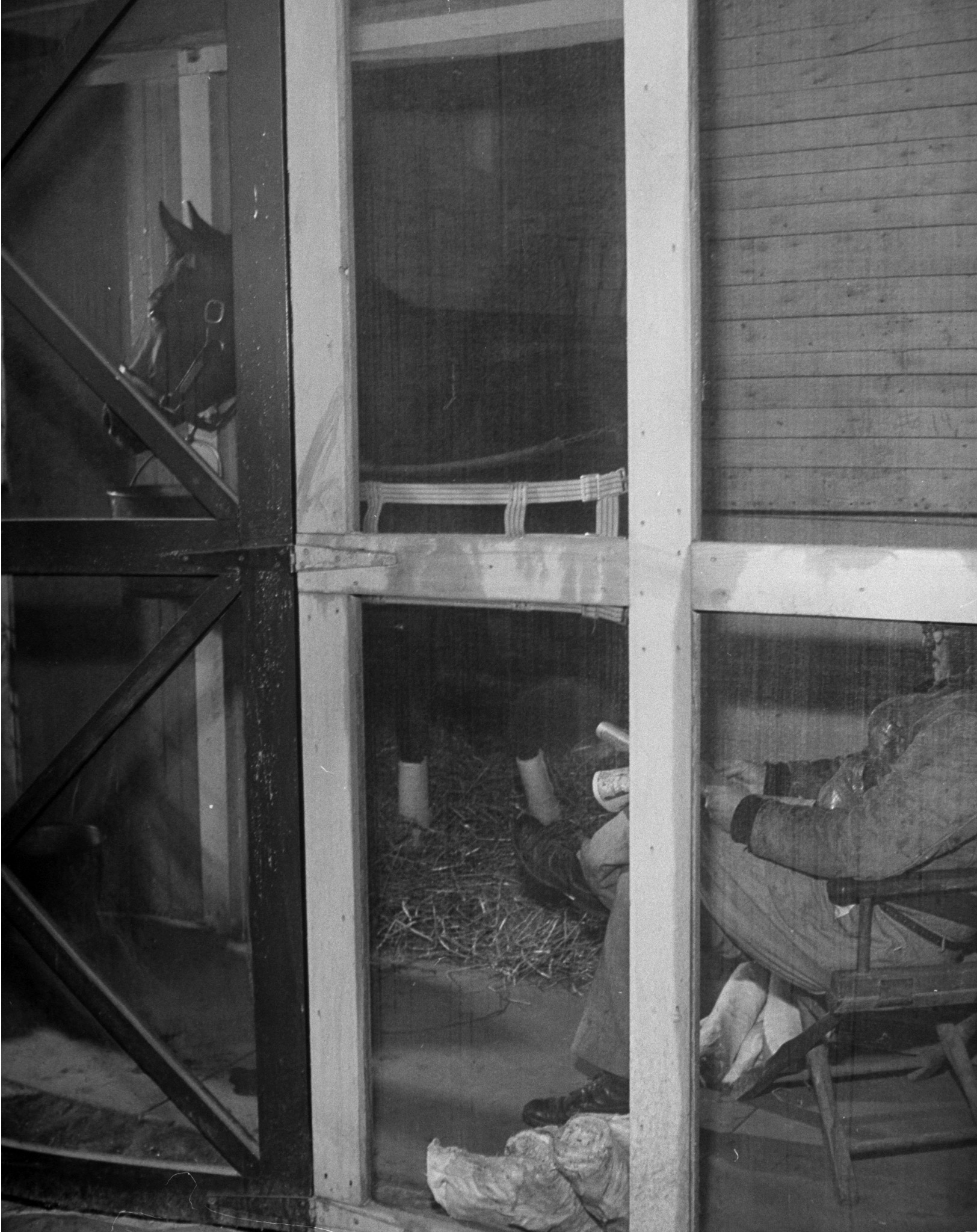
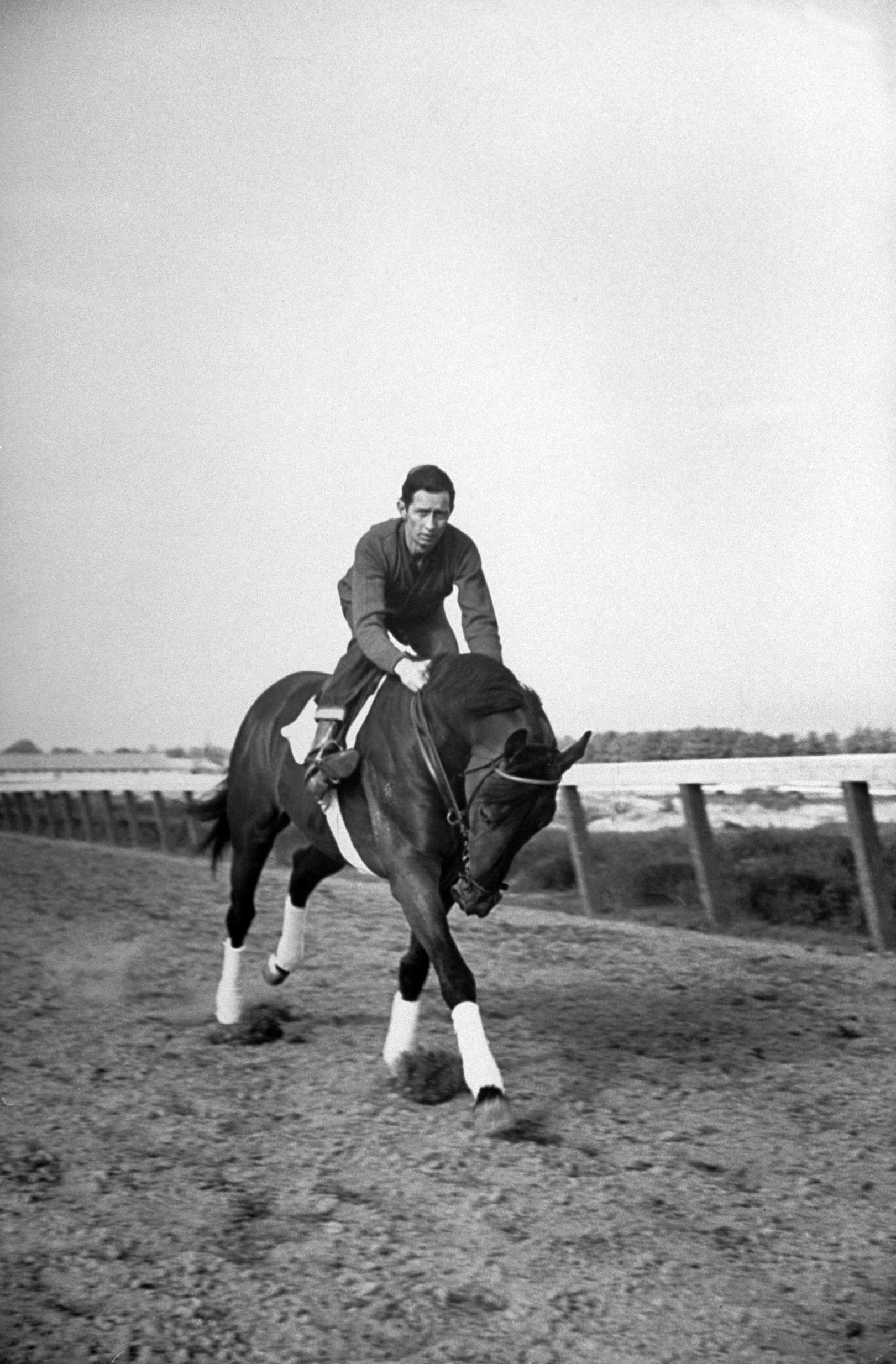
How can you tell if a horse is having fun while running?
Their ears are forward. And in the Belmont, when Pharoah is out there, he’s just like cruising around there, checking out the scenery. Just cruising along.
Soon after the race, I noticed that you gave American Pharoah a nice kiss. Did you say anything to him?
I’m constantly thanking him for coming through. But he’s really moved me in a spiritual way. You know my parents were always with me when I went through all the Triple Crowns. And they’re gone now. And to me, I always feel like maybe they have some connection to the horse. It makes me feel … that’s why I get very emotional when I talk about that horse. There’s something about this horse I’ve never felt with another horse. He’s just like, when you see him, you just love to see him because not only is he a sweet horse, but he carries a certain … he’s a very noble horse.
Do you really think that a Triple Crown winner will draw more casual fans to the race track and boost the sport?
I remember Secretariat, Seattle Slew, you wanted to follow them. You couldn’t wait for their next race. Just like any great athlete, you can’t wait to see a guy bat, to see him play.
American Pharoah will race a few more times before Breeders Cup. I’m sure he’ll run some time in July-August. Wherever that race will be, he’ll have a very positive following. Everybody was pulling for that horse. I’ve come up here before. You know how tough New York is. I was warning him [Baffert’s son Body, 10, sitting nearby] about the hecklers and everything. There was not one heckler. Every time I’ve come up here, there have been hecklers. There’s always, ‘not today Bob.’ But everybody was behind the Pharoah.
But wasn’t the Triple Crown drought, the elusive chance to witness history, driving interest? In a way, could this win backfire against horse racing down the road?
If it happens again, a lot of people will say, ‘I want to be there.’ I think a lot of people got to the point where they said, ‘you know what, I’ve been coming and coming and its just the same disappointment.’ Now it’s doable. There’s a big difference. I think it will draw more interest now. Can there be another one like him?
What human athlete does American Pharoah remind you of?
LeBron James, a Michael Phelps. Tiger Woods in golf, he’s like him, like Michael Jordan, Usain Bolt. I love Usain Bolt. When he’s in there, I can’t wait to watch him. Because you know he’s going to put on a show. That’s what the Pharoah does.
What did you say to jockey Victor Espinoza before the race?
I when I saddle him, I can tell the energy level. I told Victor, “He’s really, really good. You still have a lot of horse. Ride him with confidence, get him out there rolling, hopefully he’ll leave you alone. If he gets tired, don’t worry about it. You don’t have to save him, just let him rip.” Pharoah gave me this feeling, he looked the part in the paddock. He was doing some super-posing in the paddock, you should have seen him. He was there, he just stood there, all these people around him. And all of a sudden, he was looking at people way in the back. He was like this [Baffert cranes his neck], with his head up.
He’s got a lot of swagger, a lot of swagger. I think those other horses in the paddock, they knew. I believe in the herd instinct. When they’re running, they know. Like that horse Materiality, it’s a good horse, a speed horse (Materiality finished last). He stayed close to Pharoah, was trying to keep up with him, but he broke his heart. They give in, just like if you were chasing Usian Bolt. Dude, you’re going to look up, you’re pumping, and Usain’s going, ‘ah, you OK?’ They know.
When did your hair turn white, and why?
It’s a family trait from my mother’s side. When I was probably 17-years-old, it was salt-and-pepper. It was white probably about the time I was 30.
What would you be doing if you weren’t training horses?
That’s scary. I don’t know what I’d be doing if I wasn’t training horses. I’d probably be … (turns to wife, Jill) What do you think I would be doing?
Jill: Rock star
(laughs)
So is that the answer?
No. I really don’t know
Jill: You really like music
I like music but I wasn’t really good at music. I think I would be in some kind of sales.
You don’t seem like a sales guy.
Jill: That’s not even… no, you would not be a sales person.
What would I be? I don’t know. Maybe that’s why I’ve seen so successful, I just don’t think of anything else. There’s no plan B in my life.
I love how it went from “rock star” to “sales.” (Laughs) You forgot your heart medication at the Belmont. What a day to make that mistake.
And I thought about it when we started to take the horse to receiving barn [around an hour before the race]. ‘Oh, I forgot to take my meds today.’ I think I felt pretty good though. Once in awhile, I started thinking, and I was starting to get nervous. But it was a good nervous. The horse looked so good going up to the barn. And I remember seeing him in the back, and we always give him a bath before we take him to the paddock. And right before they gave him a bath, he was out in the sun, and the sun was hitting him, and his coat was just so bright, so healthy, gleaming. I was like, ‘Oh God, I’d hate for you to bathe him because now he’s going to look dull.’ He just looked like a picture.
Then he walked up there, we waited, we had to wait there like 30 minutes in the receiving barn, it was long. If the horses could talk they’d say, “hey, come on, you’re taking us up there way too early.’ But he was giving off a good vibe, a really good vibe, during this whole journey. It was just a positive, positive thing.
Still, in that moment, forgetting the heart medication could have cost you.
I just wanted to make it, man. I just wanted to make it to the race. What happens after that, whatever, you know?
Who’s the biggest influence in your life?
My father, because he is the one that fell in love with horses. He brought a couple of Quarter Horse mares and he decided that they were bred for racing. And that’s how he got got started. It stared out as a hobby. I was at the right age where I followed him everywhere to watch these horses run. And when I got old enough I helped take care of them, that’s how I got into it.
What does it take to be a successful horse trainer?
You need to be able to learn to read the body language of a horse. It just comes with lots of years of experience. I grew up with horses and animals. You just learn by looking at them. You can tell by the look in their eye. You can tell if they’re happy, or sad.
You know, their ears. If horses get their ears pinned a lot, they’re not happy. They’re not enjoying their job at all. Ears and the eyes. You can tell by their hair color, their tone, their body. This horse, every time he got here he galloped over to the track. He just marched on to the track. I kept seeing the way he would move, that he was a beautiful horse.
Much was made of how often jockey Victor Espinoza whipped American Pharoah in the Kentucky Derby. Are horses whipped too much?
The issue in the Derby for Victor, it came up because people were surprised. American Pharoah, he never gets the whip. But he didn’t run his A-race, he wasn’t focused, he was not engaged, he was not running. I don’t know if it was the screaming—he has very sensitive hearing, that’s why I keep the ear plugs. For some reason that’s the only race he ever had to be whipped.
First of all the whip that they use now, it’s really light. It’s just to keep them focused, so they keep a straight course. I know Victor felt like he was hitting the brakes with him [in the Derby]. He wasn’t tired, he just didn’t want to go on; 170,ooo people, he hadn’t seen anything like that.
They don’t do it to punish the horse. They do it just to keep his focus. It doesn’t leave any welts. In the old days they had these really long ones, and they’d leave welts.
Will we have to wait another 37 years to see this again?
Well, I won’t see it if it’s 37 years. Hopefully, it won’t be. I think the game has changed. A lot of people skip the second one. It will take another horse like this to come along. Pharoah is a very sturdy horse. Races don’t take a lot of out him. He won the Preakness effortlessly. The Belmont, that was nothing for him. And that was a mile-and-a half. I was worried about the mile-and-a half. When he turned for home, Victor was just sitting on him. He hadn’t even asked him to run yet. I saw that [and thought] ‘Every time I run him, he shows me a new dimension.’
American Pharoah’s owner, Ahmed Zayat, had previously fired you. What’s that dynamic been like?
When he first got in the business, he was all over the place. He’s a stats guy. He had multiple trainers, and he hired me and he went into it thinking he was going to do it his way. A lot of people that are very successful in their own business, they try to bring that mindset into horse racing. Well you can’t. I can be the brightest guy, but when I get outside the stable game, your IQ is so much higher than mine. But when we get inside the stable area, yours drops and mine goes way up.
It’s hard for some people to realize, ‘I‘d better listen to this guy.’ So it took him a few years, and we got back together and ever since then we’ve had a great relationship, mutual respect for each other. He is very emotional, and sometimes he can be very hyper. He sounds like the Bruno from Dancing with the Stars, you know what I mean? That’s him. He’s like a big kid. But at the end of the day, there’s a really soft good side to him. But he’s a tough businessman, and he’s a super family man.
I noticed that a rep from Monster, the energy drink, asked you to wear a company pin at the Belmont. You declined, citing superstition. But I got the feeling that you didn’t want to wear a company logo on a potentially historic day. Did I read that right?
I just wanted to stay with the plan. I just wanted to keep it historical.
But someone in a Burger King costume was in your box.
The reason we did it was because the money goes to charity. [Jill says Burger King paid $200,000 for the placement, and the money would be directed to causes like post-career assistance for jockeys and racehorses.]
What’s been some of the reaction to your win?
The phone’s buzzing non-stop. There are some numbers I don’t know. I say thank you to a random number. I’m afraid to say, ‘who’s this?’ in case I’m supposed to know. A lot of people I haven’t heard from in a long time. I mean I even got a text yesterday from Reggie Jackson, and I hadn’t talked to him in … (turns to Jill) since when?
Jill: 14 years?
Any advice for wannabe Bob Bafferts out there?
You’ve got to really pay attention to the great trainers. That’s how you learn. When I first came in, I saw saw what those guys did, how they handled their horses. If you love the horse, they’ll respond. You have to love the horse.
A Mordant Look Back at the Kentucky Derby With Martin Parr

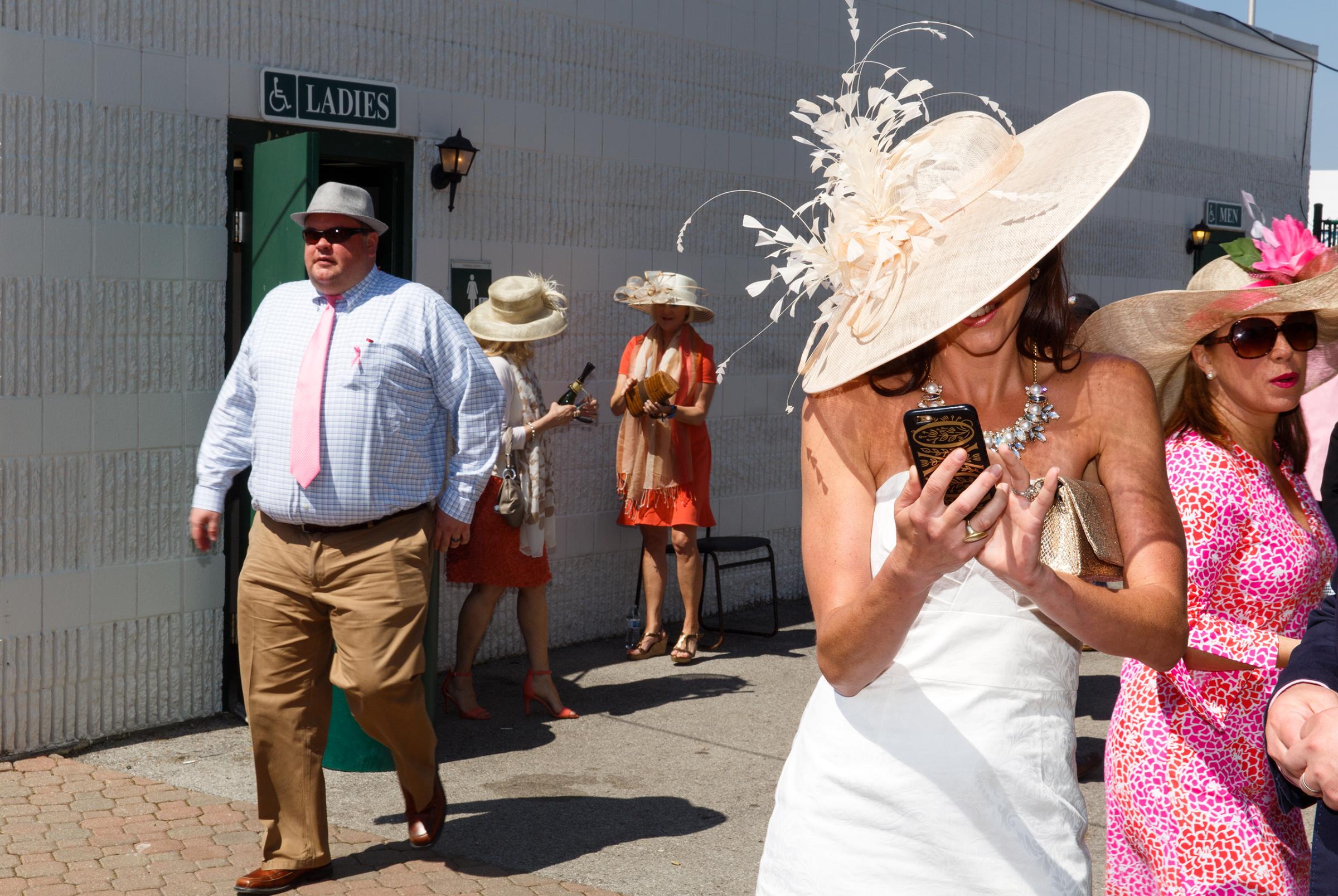
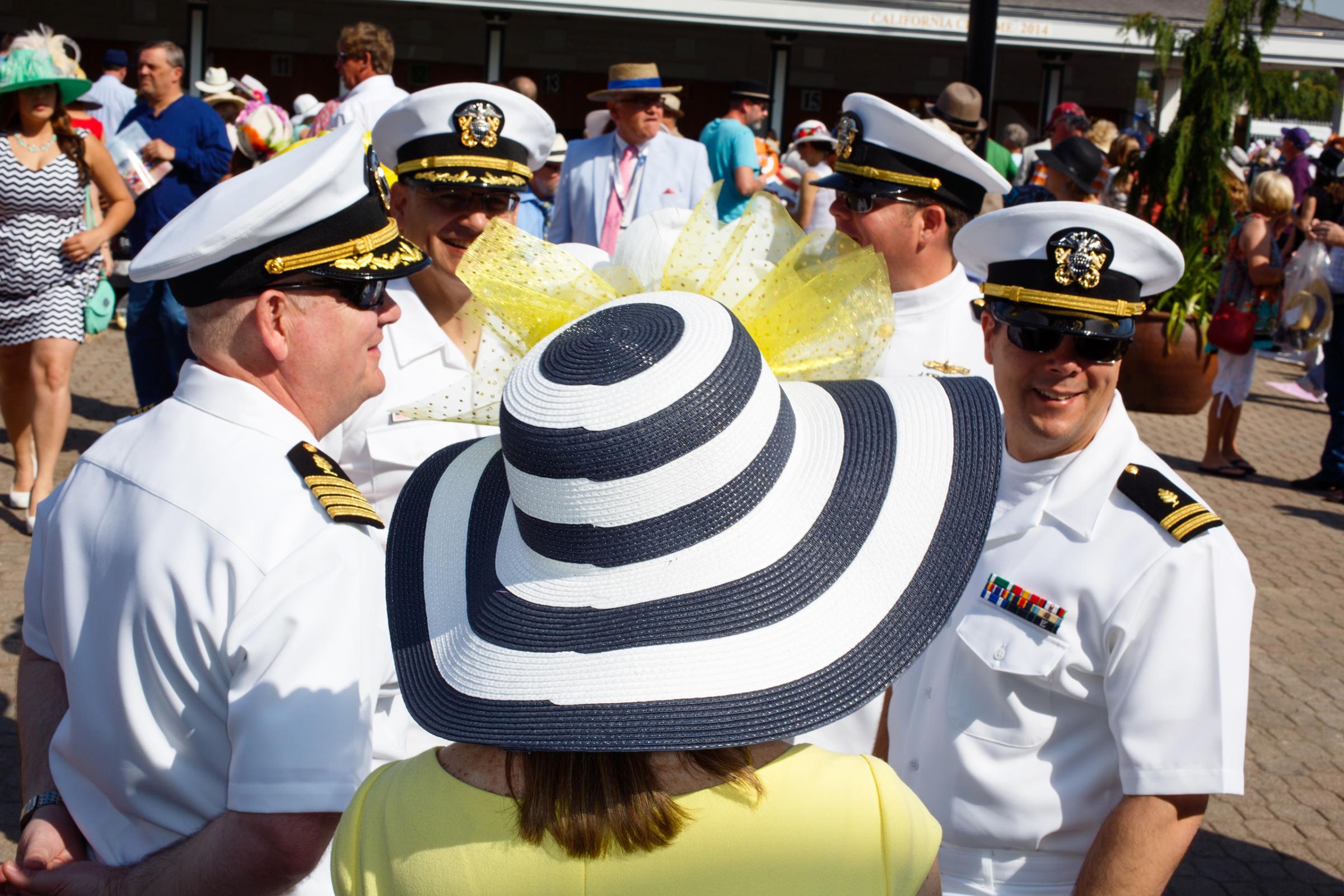
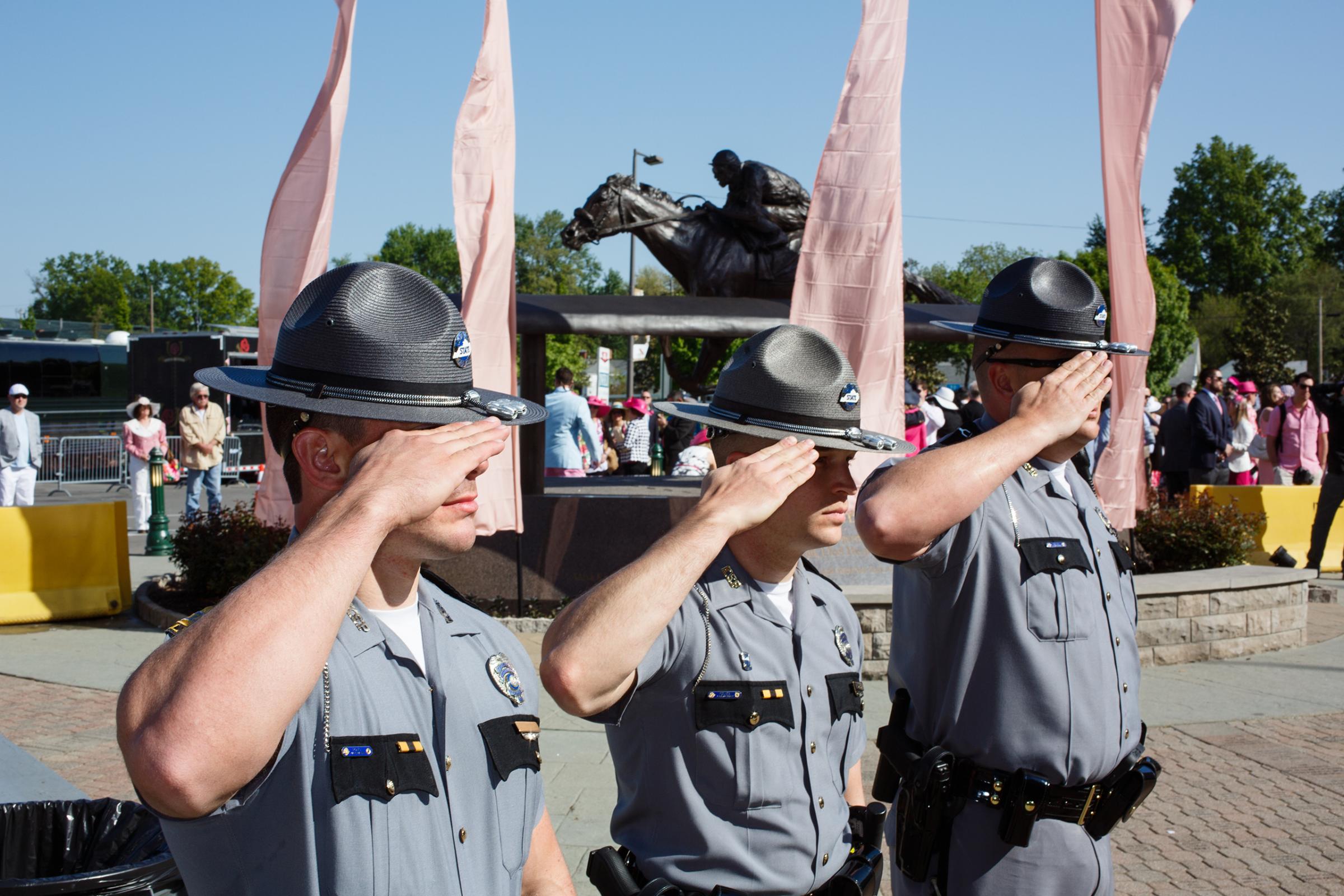

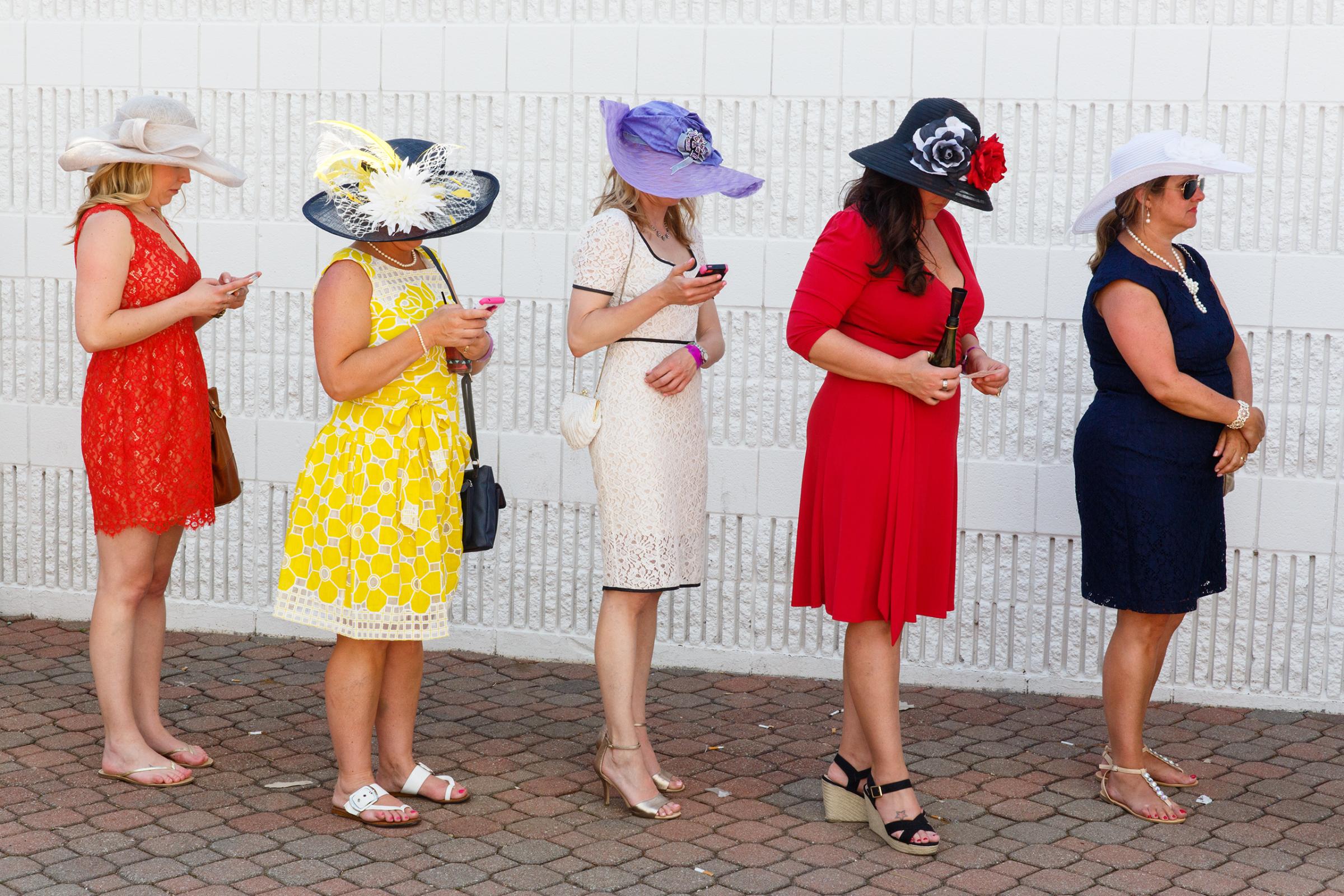
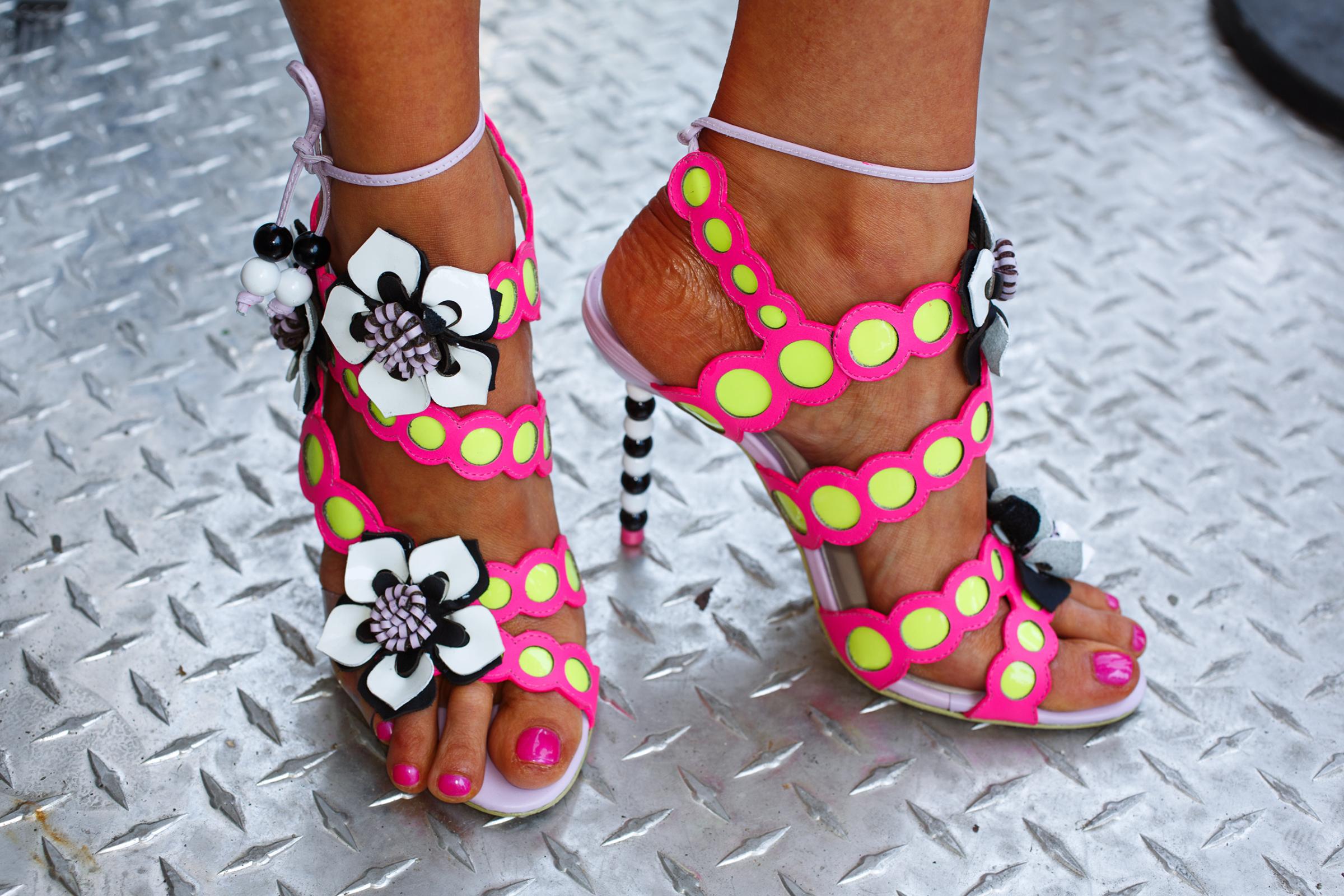
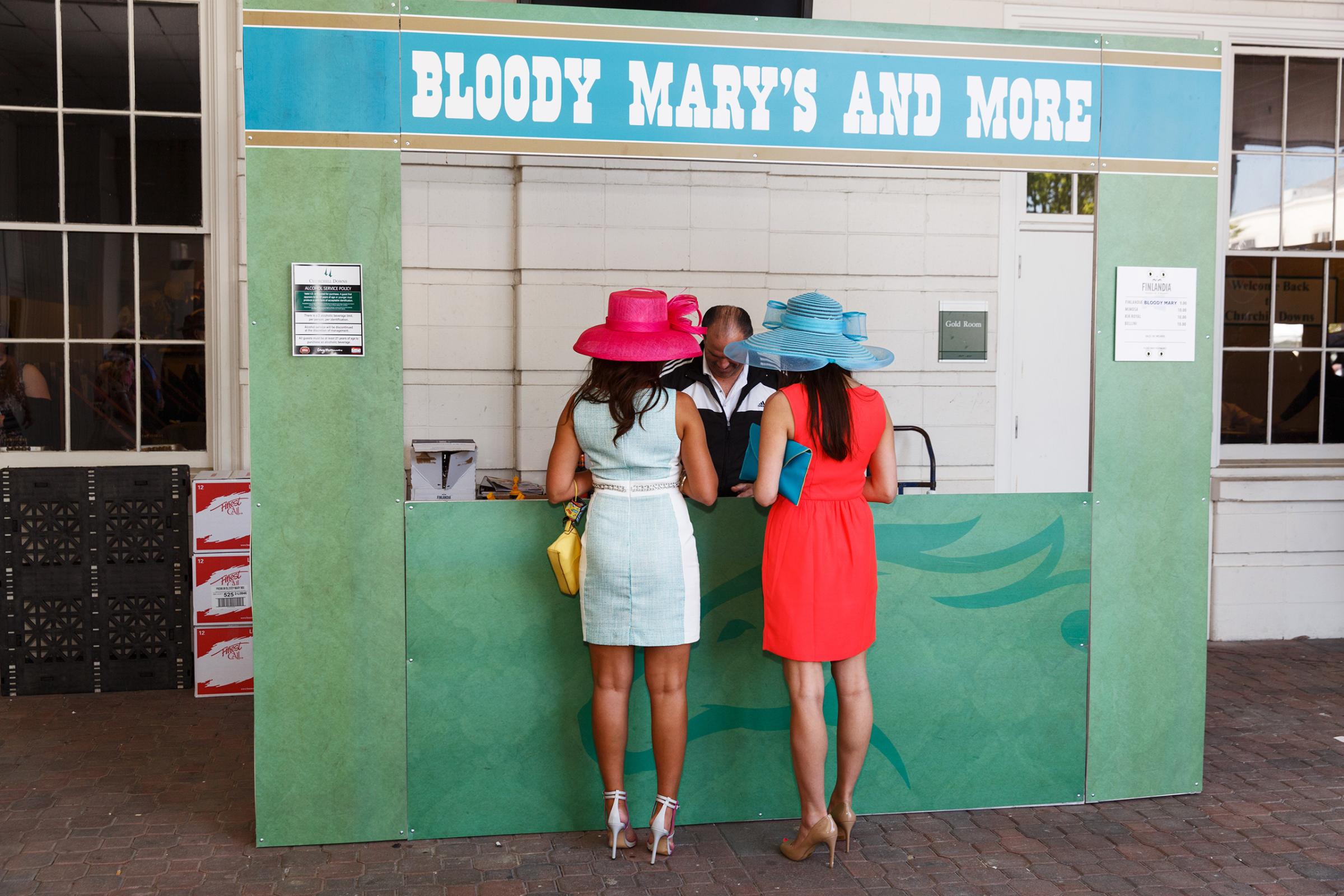
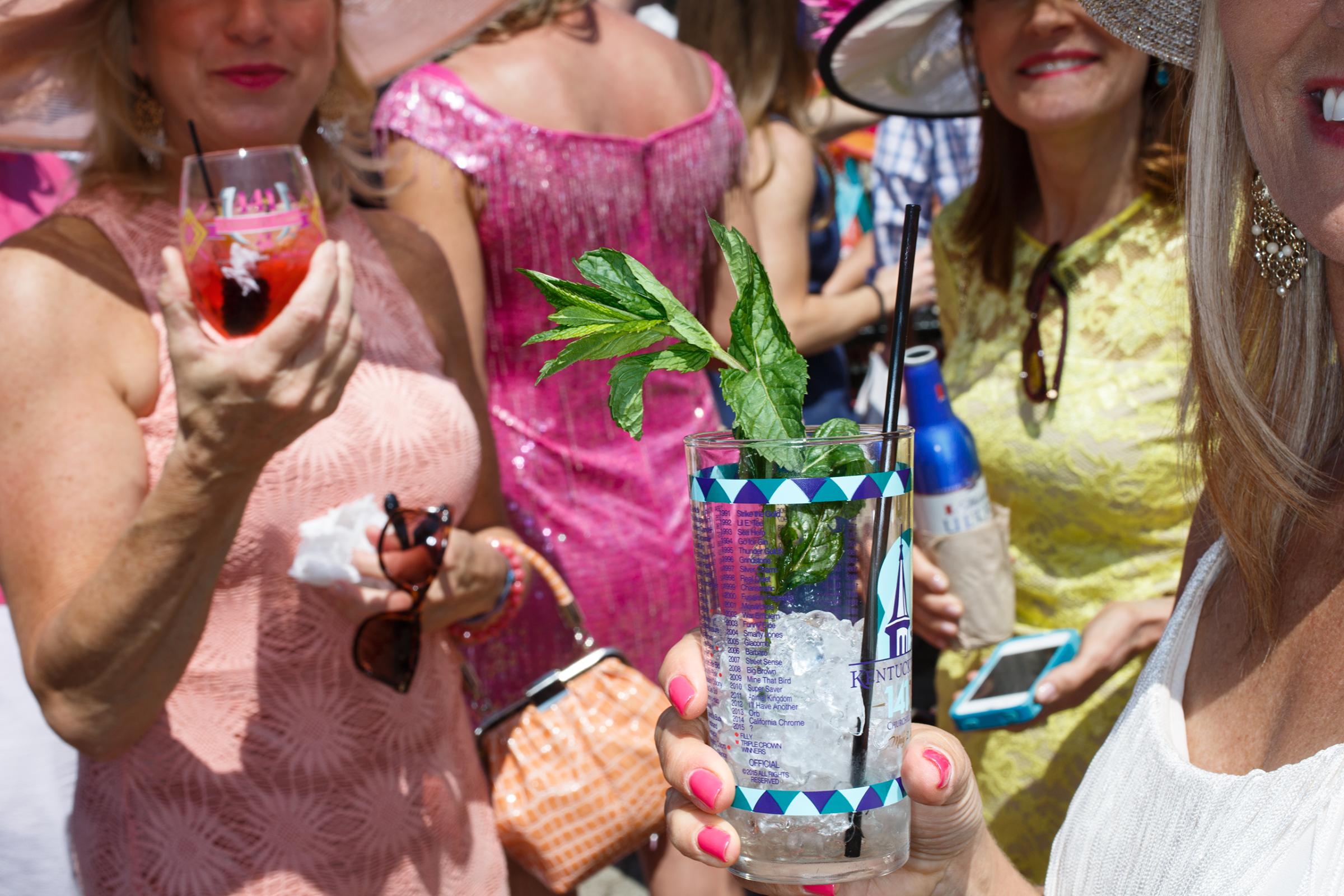
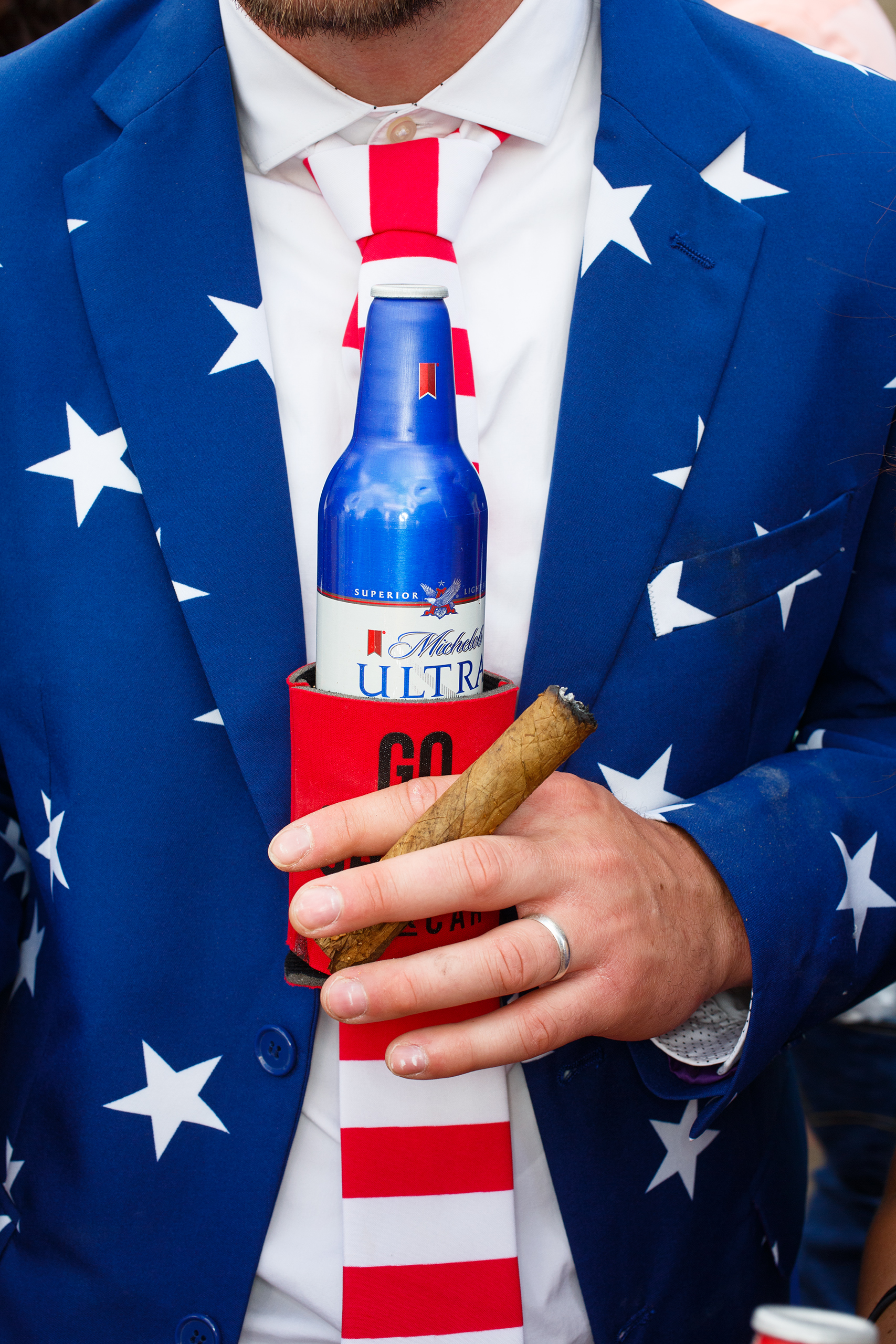
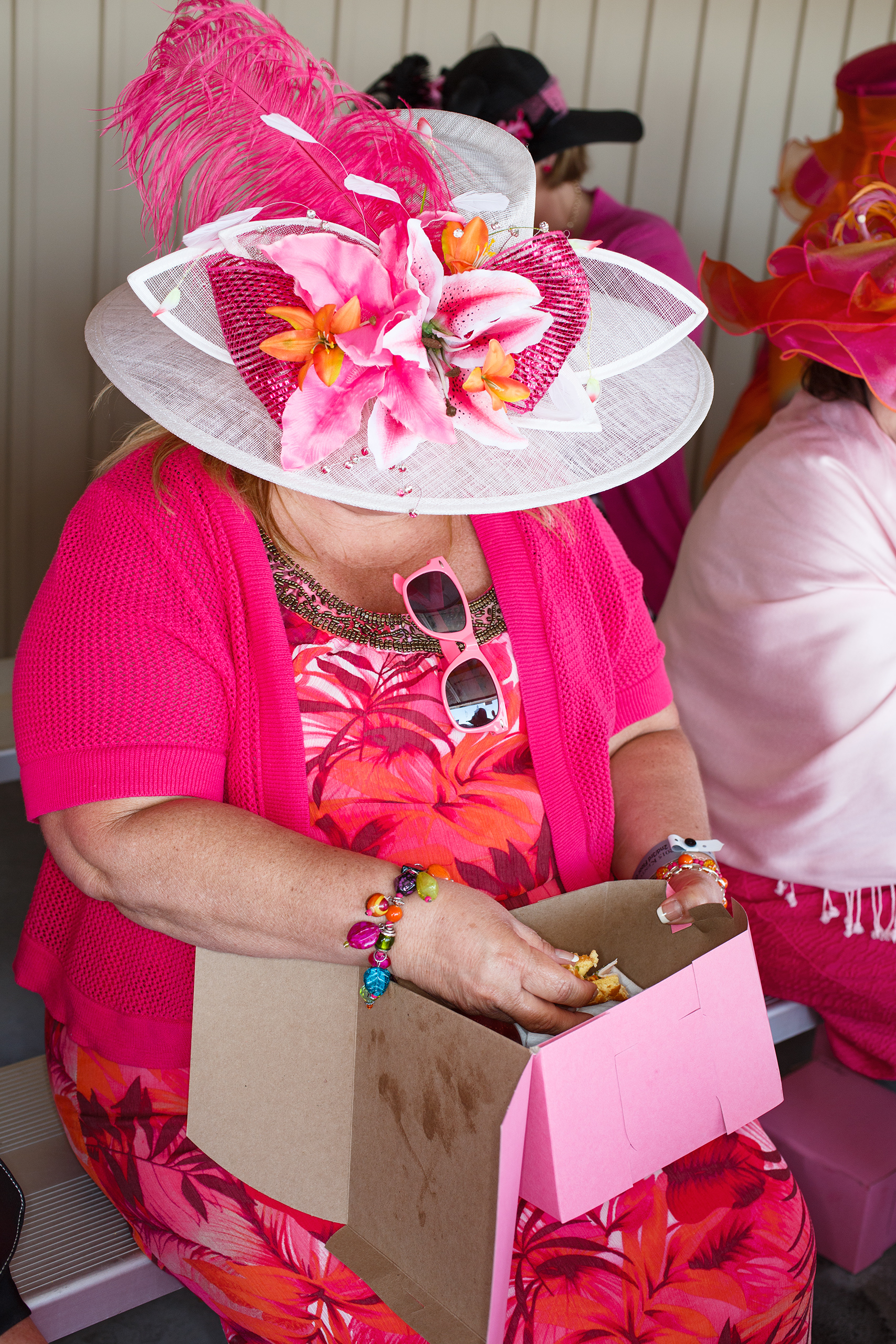
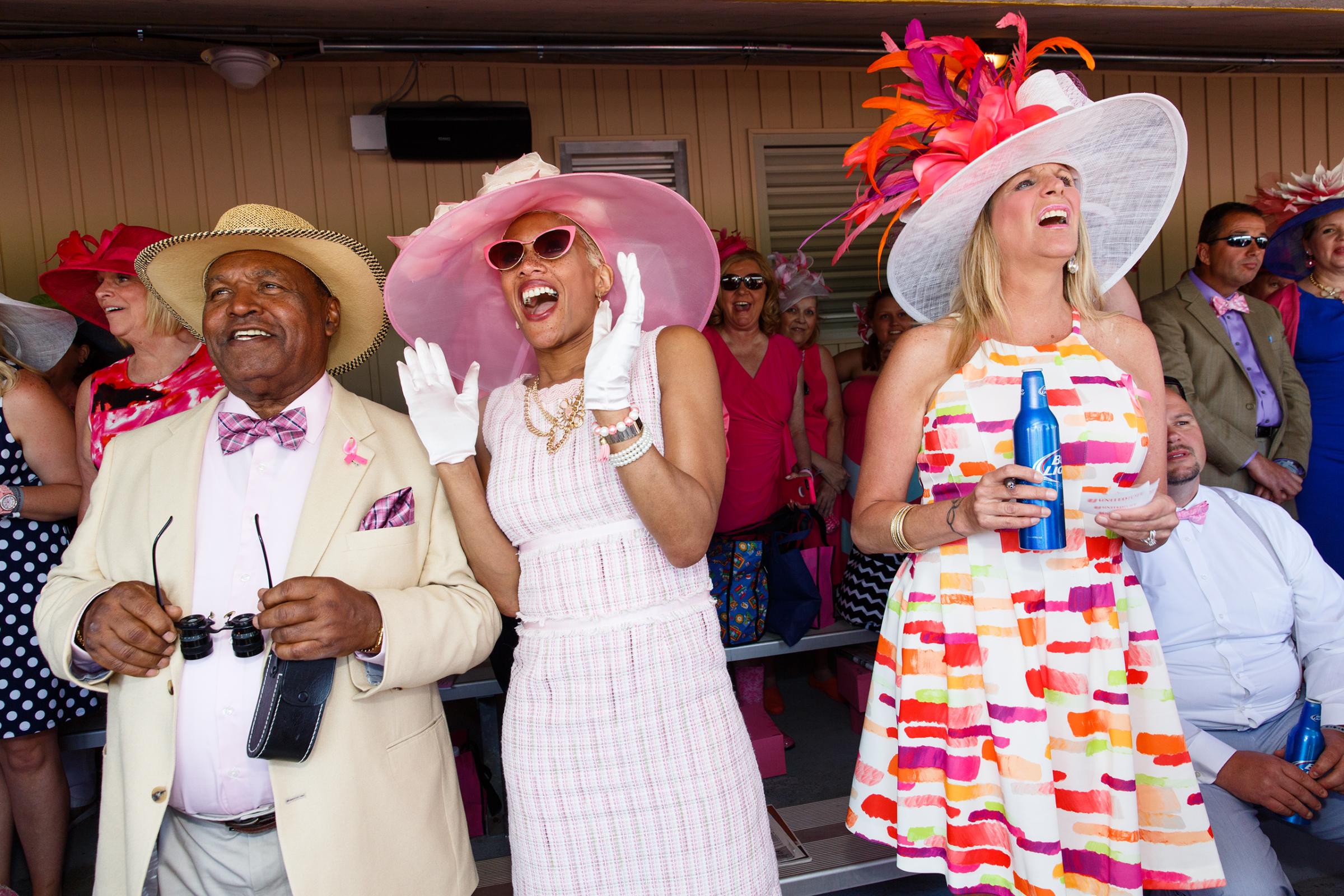
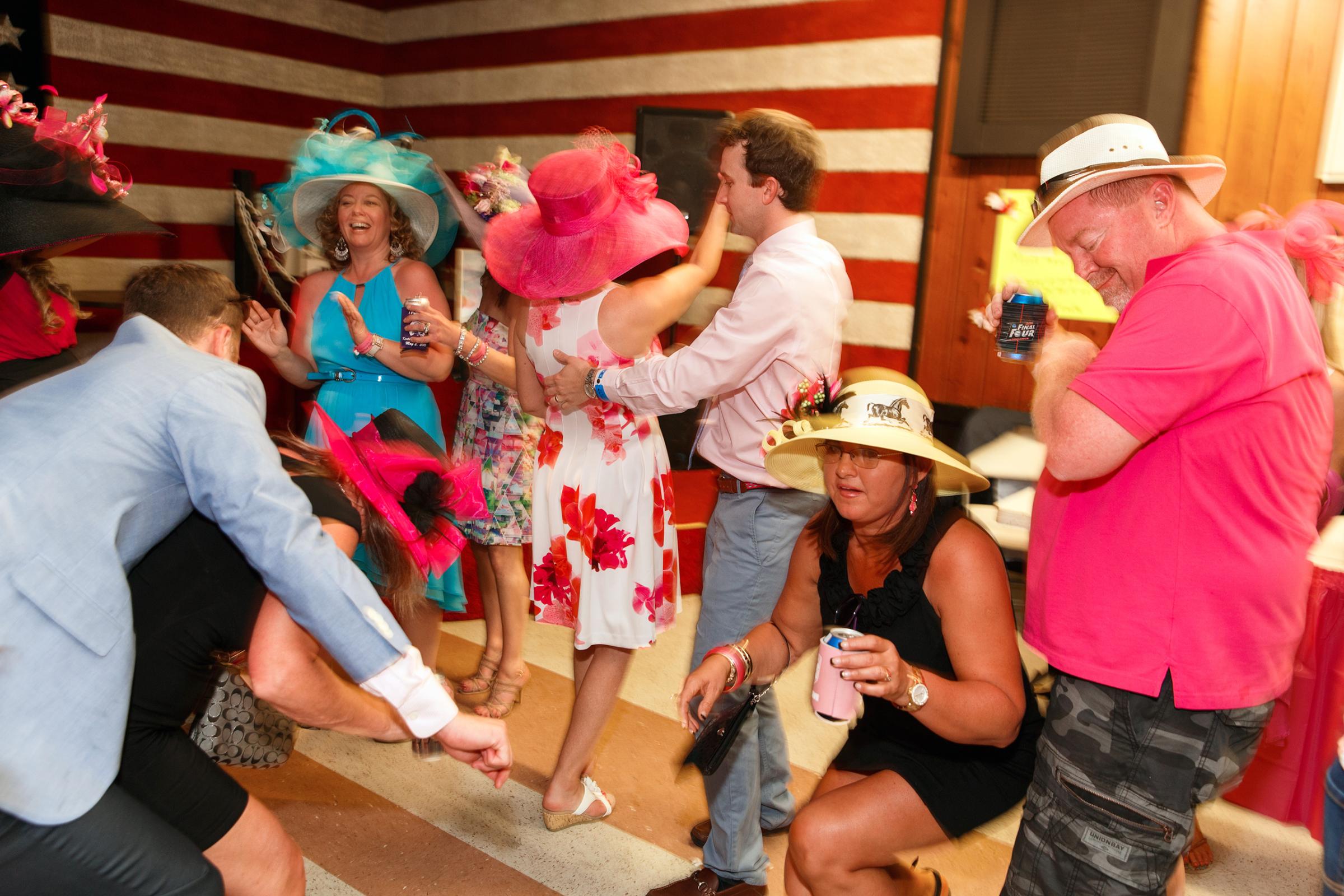
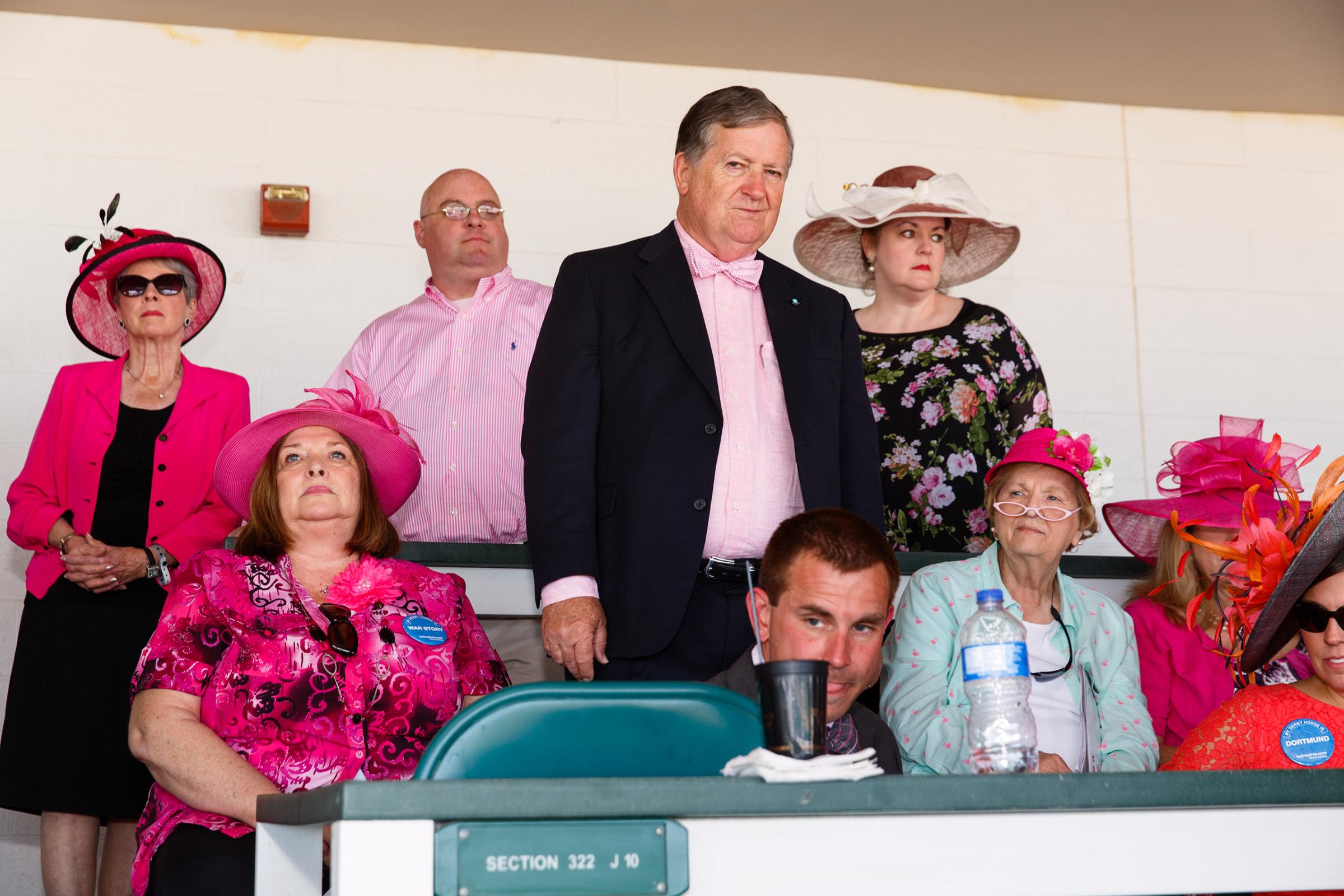
More Must-Reads from TIME
- Why Trump’s Message Worked on Latino Men
- What Trump’s Win Could Mean for Housing
- The 100 Must-Read Books of 2024
- Sleep Doctors Share the 1 Tip That’s Changed Their Lives
- Column: Let’s Bring Back Romance
- What It’s Like to Have Long COVID As a Kid
- FX’s Say Nothing Is the Must-Watch Political Thriller of 2024
- Merle Bombardieri Is Helping People Make the Baby Decision
Write to Sean Gregory at sean.gregory@time.com